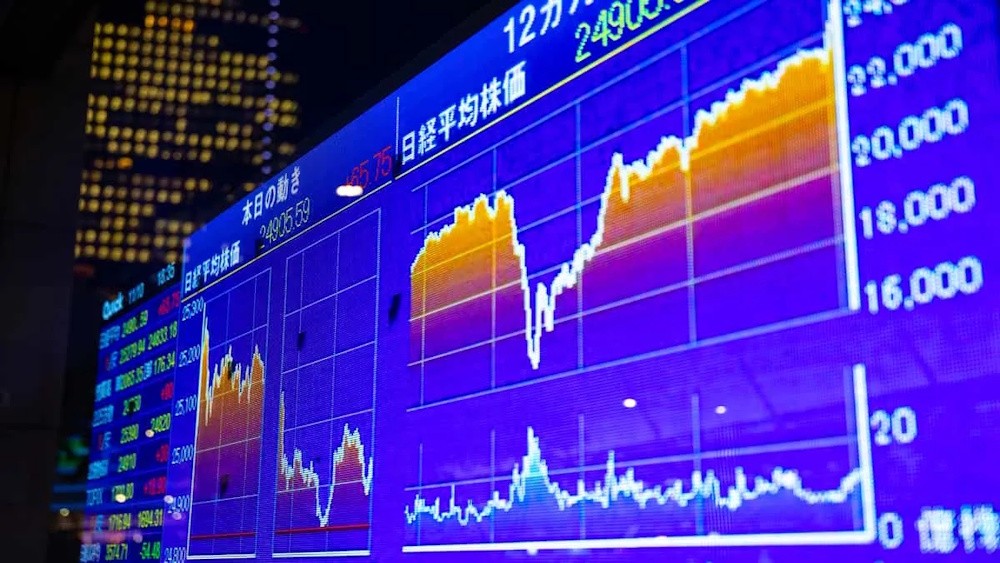
Asia-Pacific markets experienced a decline on Friday, mirroring the downturn observed, amid ongoing apprehensions regarding elevated valuations in artificial intelligence stocks. The shares of prominent AI firms experienced a decline on Thursday in the United States, contributing to a downward pressure on the overall U.S. market. The most significant declines were observed in Nvidia, Microsoft, Palantir Technologies, Broadcom, and Advanced Micro Devices. Japan’s benchmark Nikkei 225 index experienced a decline of 1.19%, closing at 50,276.37. AI-related stocks were the primary detractors: SoftBank experienced a decline of 6.87%, semiconductor testing equipment manufacturer Advantest saw a drop of 5.54%, chipmaker Renesas Electronics fell by 3.75%, and Tokyo Electron, a producer of chip manufacturing equipment, decreased by 1.35%. The Topix index concluded the trading session at approximately 3,298.85.
In a session marked by volatility, South Korea’s Kospi experienced a decline of 1.81%, closing at 3,953.76, while the small-cap Kosdaq saw a drop of 2.38%, finishing at 876.81. The nation’s leading memory chip manufacturers, Samsung Electronics and SK Hynix, experienced declines of 1.31% and 2.19%, respectively. Australia’s S&P/ASX 200 experienced a decline of 0.66%, concluding at 8,769.7. Hong Kong’s Hang Seng Index decreased by 0.92%, closing at 26,241.83, whereas the mainland’s CSI 300 experienced a decline of 0.31%, settling at 4,678.79.
China’s October exports fell by 1.1% in U.S. dollar terms compared to the previous year, according to official data released on Friday. This outcome was below the anticipated 3% growth indicated by a survey and represents a significant decline from the 8.3% increase recorded in September. In October, imports fell short of projections, increasing by 1% year on year. Forecasts indicated a 3.2% growth, a decline from the 7.4% observed in September. Weak domestic demand persists, influenced by a prolonged housing slump, increasing job insecurity, and the gradual reduction of consumption-oriented stimulus measures. India’s Nifty 50 experienced a reversal, increasing by 0.11%, whereas the Sensex index remained unchanged. Shares of Bharti Airtel experienced a decline following the announcement from a unit of Singapore-based telecom firm Singtel on Friday regarding the sale of a stake in the Indian company for 1.5 billion Singapore dollars.
Singtel shares experienced an increase of up to 2.67% on Friday, following the achievement of an all-time intraday high, whereas Airtel saw a decline of as much as 4.34%. Singtel stated that the sale was intended to “proactively optimise its portfolio through asset recycling,” resulting in a reduction of its stake in Airtel to 27.5% from 28.3%. CFO Arthur Lang stated that with this transaction, asset sales from Singtel have now totaled SG$5.6 billion, exceeding half of the company’s medium-term monetization target of SG$9 billion. U.S. futures experienced a modest increase during the early hours of trading in Asia, following the sell-off in technology stocks observed on Thursday. Overnight, the Dow Jones Industrial Average declined by 398.70 points, representing a decrease of 0.84%, concluding at 46,912.30. The S&P 500 experienced a decline of 1.12%, concluding at 6,720.32, whereas the Nasdaq Composite fell by 1.9%, finishing at 23,053.99.
